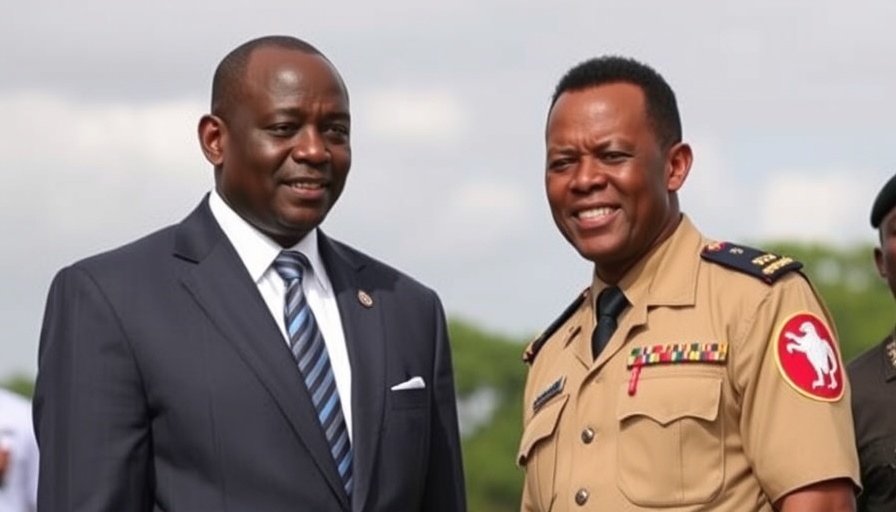
Ruto's Reconciliation Strategy: A Turning Point for Political Stability
In a notable gesture aimed at bridging political divides, Kenyan President William Ruto has announced his intention to meet key demands from opposition leader Raila Odinga. This decision comes on the heels of public protests spurred by controversial governmental actions that have left many citizens dissatisfied. Notably, Ruto plans to address the plight of protest victims by offering compensatory payouts, a strategic move that could reshape political dynamics in the country.
Context Matters: The Political Landscape
The backdrop of Ruto's latest announcements is rife with unrest and discontent among various segments of the population. With tensions escalating following controversial elections, Ruto's overtures may represent more than mere appeasement; they could serve as a critical step toward long-term stability. Acknowledging the demands of leaders like Odinga not only highlights the government's willingness to engage in dialogue, but may also signal a shift towards collaborative governance.
Expectations from the Meeting: Insights and Implications
As Ruto prepares for his meeting with Odinga, several key expectations emerge. Not only are citizens eagerly watching for concrete actions regarding protest victim compensation, but they are also looking for assurances that their grievances are being taken seriously. This meeting could potentially set the tone for Ruto’s presidency and his administration’s ability to navigate Kenya's intricate political landscape.
The Broader Implications for Governance in Africa
Ruto’s initiative could resonate beyond Kenya’s borders, offering a potential roadmap for other African nations grappling with similar governance challenges. Instances of political unrest across the continent underline the necessity for open dialogue between government officials and the populace. As African economies continue to evolve, the incorporation of inclusive governance structures could be crucial for enhancing stability and fostering growth.
What Lies Ahead: A Moment for Business Leaders and Investors
For the business community, Ruto’s actions could signal an opportunity. A politically stable environment is essential for fostering economic growth and attracting foreign investment. Stakeholders in sectors such as trade and finance should pay attention to how these political developments unfold, as they may have significant ramifications on market dynamics in the region.
In conclusion, Ruto's commitment to addressing Raila's demands highlights pivotal shifts in African governance trends. The outcomes of these engagements will be closely monitored not just by national leaders but by global investors as well, placing Kenya at a critical junction in its political and economic narrative.
 Add Row
Add Row  Add
Add 


Write A Comment